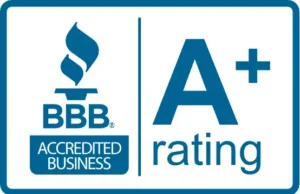Currently, Synchrony offers low monthly payments and many financing options. You can have your home repaired now and pay later with one of Synchrony's six monthly payment programs.
Home elevation has become an increasingly important consideration for homeowners in Hull, Liberty County, Texas. This coastal community faces unique challenges related to flooding and water damage, making structural modifications essential for protecting residential properties. As extreme weather events become more frequent and severe, many residents are turning to professional elevation services to safeguard their homes and families.
Located in Liberty County, Hull experiences significant flood risks due to its proximity to waterways and low-lying terrain. The area’s geography makes it particularly vulnerable to storm surge, heavy rainfall, and rising water levels during severe weather events. Consequently, elevating homes above the base flood elevation has become a critical flood mitigation strategy for protecting properties and ensuring compliance with local building codes and insurance requirements.
Furthermore, elevated homes often qualify for reduced flood insurance premiums, providing long-term financial benefits to homeowners. The Federal Emergency Management Agency (FEMA) recognizes home elevation as an effective flood damage reduction measure, which can translate into substantial savings over time.
Professional home elevation involves raising an entire structure to a predetermined height using specialized equipment and techniques. The process typically begins with a thorough assessment of the existing foundation and soil conditions. Engineers and contractors then develop a customized plan that addresses the specific needs of each property while ensuring structural integrity throughout the elevation process.
During elevation, the home is carefully lifted using hydraulic jacks or other lifting systems. New foundation elements are constructed beneath the raised structure, creating additional clearance between the living space and ground level. This process requires precise coordination and expertise to prevent damage to the home’s structural components, utilities, and interior systems.
Selecting the right contractor for home elevation projects in Hull requires careful consideration of experience, licensing, and specialization. Allied Foundation provides comprehensive residential elevation services specifically designed to meet the unique needs of Liberty County homeowners. Their focus on residential projects ensures that clients receive specialized attention and expertise tailored to home elevation requirements.
Professional elevation contractors understand local building codes, permit requirements, and engineering standards specific to Liberty County. They also coordinate with utility companies to properly relocate electrical, plumbing, and HVAC systems during the elevation process. This attention to detail ensures that elevated homes meet all safety standards and regulatory requirements while maintaining functionality and comfort for residents.
By investing in professional home elevation services, Hull residents can protect their properties from flood damage while potentially reducing insurance costs and increasing property values. This proactive approach to flood mitigation represents a sound investment in both immediate safety and long-term financial security.
Proudly Serving Hull for over 40 years!


